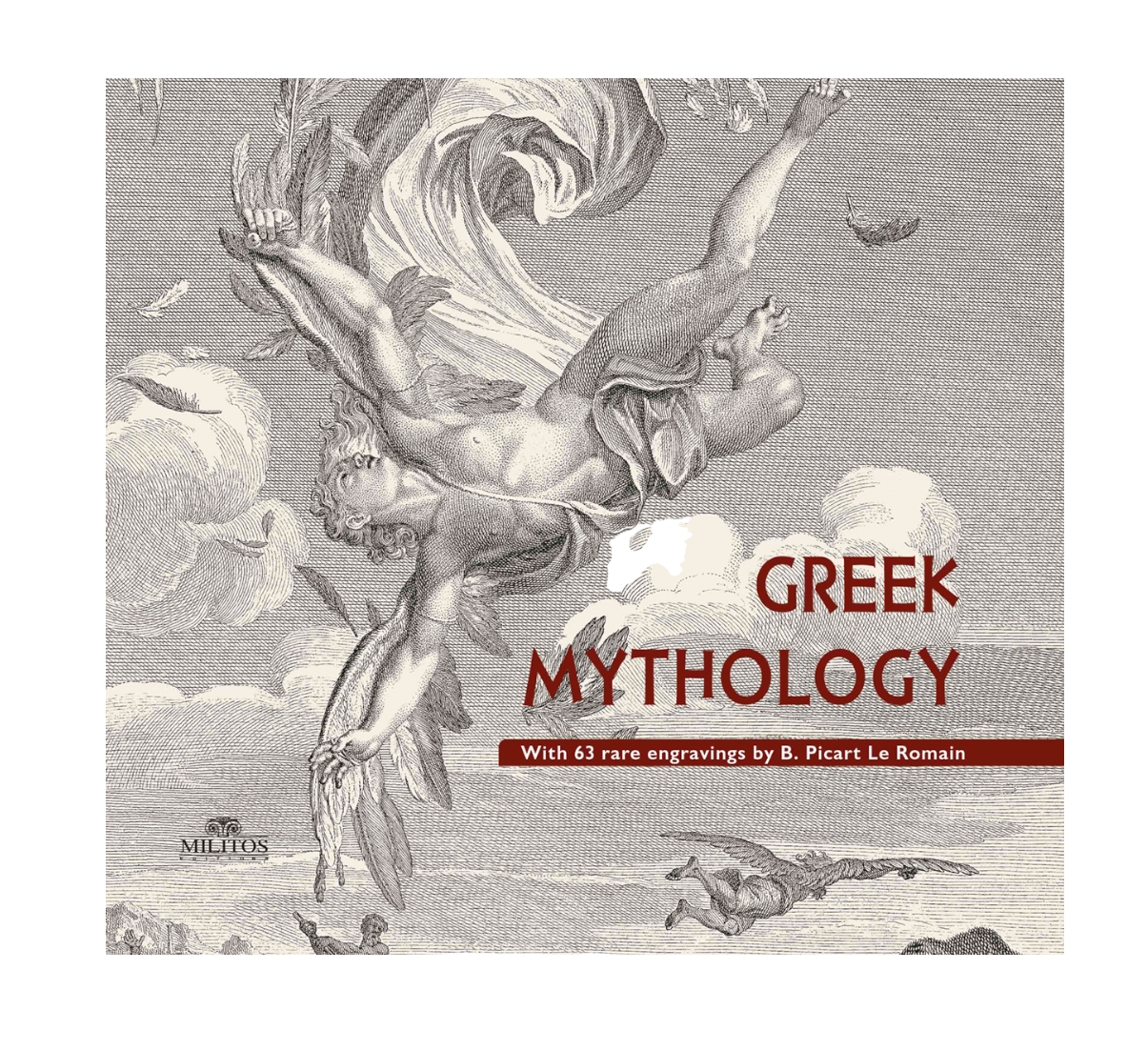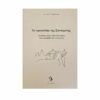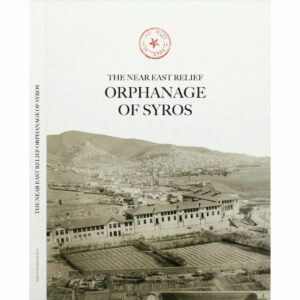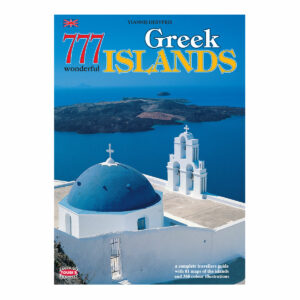Greek Mythology
€ 45.00 incl. VAT
Currency conversions are provided for informational purposes only. Checkout is done in EURO.
With 63 rare engravings by B. Picart Le Romain
ISBN: 9786185694906
Publisher: Militos Editions (2023)
Hard Cover
Pages: 214
Dimensions: 25Χ22.5cm
Languages: English
2 in stock
Estimated shipping date: 07 Apr 2025
Greek Mythology
With 63 rare engravings by B. Picart Le Romain
ISBN: 9786185694906
Publisher: Militos Editions (2023)
Hard Cover
Pages: 214
Dimensions: 25Χ22.5cm
Languages: English
About
Myths are a way of expressing and seeking answers to tantalizing questions, such as how the world came to be what powers govern it, and how man and other beings were created. Before coming to the explanation of natural phenomena by logic, man used mythical thinking to give answers to the problems that concerned him. Thus, myth is a basic attitude of human consciousness that creates myths out of unintelligent forces, out of the awe of the unknown and the inevitable, out of the desire to fulfill in imagination what cannot be fulfilled in nature, out of the desire to see death overcome by immortal beings. In other words, human consciousness creates myths aspiring to make what is logically impossible possible in an imaginary world. Therefore, the primary source of myth is the responses of consciousness to the unknown, which it seeks to comprehend and in which it wants to act, since only in this way can its existence be fulfilled. Thus, human consciousness constructs a world by composing rational and irrational elements. Even when a knowledge of the laws of nature was born, human consciousness still sought to extend beyond science.
Myth is common to all the peoples of the Earth. But ancient Greek mythology transcended all geographical and temporal boundaries. The gods of Greek mythology, such as Zeus, Athena, or Aphrodite, and the heroic figures, such as Achilles or Odysseus, are known not only in Greece where they were born, or in Europe that was spiritually based on Greek civilization, but also in the far reaches of the world. A first reason that explains this high prominence of Greek mythology is the fact that, through the intervention of the Romans, it initially became known in Europe as early as the Middle Ages, and its high quality set aside the Western national medieval myths.
The Greek myth was cultivated, at least for fourteen centuries, in the lands where it was born by several epic, lyric, and dramatic poets, who made it a carrier of the ideals of the Greek world.
Content
Introduction
The Chaos
The Giants, or Titans
Enceladus
Pandora
Prometheus
Deucalion’s deluge
Deucalion and Pyrrha
Phaethon struck by a thunderbolt
Cycnus changed into a Swan and the Heliades into Poplars
Io changed into a heifer. Argus killed by Hermes
Pan and Syrinx
Semele consumed by the fire of Zeus
Daphne changed into a laurel
Leucothoe is seduced by Apollo in the shape of Euronome
Clytie changed into a heliotrope
Selene and Endymion
Lycaon transformed into a wolf
Tithonus and Eos
Memnon’s statue
Pygmalion
Actaeon changed into a stag, and devoured by his own dogs
Oeneus and the Calydonian boar
Meleager and Atalanta
Heracles and Achelous
Heracles and the Lernaean Hydra
Heracles’s death and apotheosis
The birth and labours of Heracles
Castor and Pollux, or the Twins
The Dioscuri or Castor and Pollux, protectors of sailors
Proteus
Glaucus changed into a sea god
Symplegades or Cyanean rocks
Alpheus and Arethusa
Salmacis and Hermaphroditus
The Sirens
Ceyx and Alcyone transformed into birds
The fall of Icarus
Leander and Hero
The transformation of the Nymph Echo
Narcissus changed into a flower
Arion and the Dolphin
Medusa or the Gorgons
Andromeda
Atlas transformed into a Mountain
Bellerophon fights the Chimaera
Amphion builds the walls of Thebes by the music of his lyre
Niobe changed into a Rock
Phineus is delivered from the Harpies by Calais and Zethes
Jason and the Golden Fleece
Telephous wounded and cured by Achilles’s Lance
Penelope’s web
The Palladium
Cassandra
The Underworld
Only logged in customers who have purchased this product may leave a review.





Reviews
There are no reviews yet.